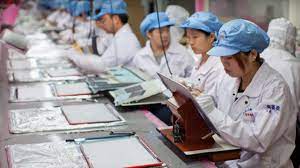
Apple is now partnering with the International Labor Organization to help expand initiatives for the people in the supply chain.
Apple establishes a $50 million fund for supplier employee development as part of an initiative.
More details will be discussed in this article. So, follow the article to the end to find out more about the topic.
Here's everything you need to know about it:
Apple raises $50 million supplier employee development fund

Apple has partnered with the International Labor Organization and the International Organization for Migration to support expanded initiatives for people throughout its supply chain. Education experts from around the globe are also part of the partnership.
Apple has partnered up with the International Labor Organization and the International Organization for Migration to help expand initiatives for people in the supply chain.
The Cupertino-based tech company has announced a $50 million Supplier Employee Development Fund to expand learning opportunities and skills development.
The company claims that the new education programs will allow suppliers to access training and coursework around the globe. Individuals in the US, China, and India will be able to access the program initially.
The company offers in-person and online education, skill-building, and enrichment courses as part of the new program. This is to offer opportunities to people within their supply chain to learn new leadership and technical skills.
The fund also includes a partnership with universities, rights advocates, and nonprofits to support Apple's ongoing efforts to empower supplier employees. To increase workers' voices, the company works with supply chain partners.
The $50 fund commitment includes support for the worker rights programs that were created by the International Labor Organization for people working in the electronic sector. It also supports the work of the International
Organization for Migration to increase rights training and scale up its responsible labor recruiting tools.
Apple also released its 16th annual People & Environment in Our Supply Chain Report. This report contains detailed information on how Apple's suppliers and customers are supporting employees in the supply chain, including transitioning to cleaner energy and investing in cutting-edge technology.
Apple announced new partnerships with organizations and UN agencies working on labor rights.
The International Labor Organization

The International Labor Organization (ILO), a United Nations agency, was established in October 1919 by the League of Nations. Its mandate is to promote social and economic justice through the setting of international labor standards.
It has 187 member countries, including 186 of the 193 UN members and the Cook Islands. The ILO is headquartered in Geneva. It has around 40 field offices all over the globe.
The ILO's labor standards aim to ensure that everyone has access to work equitably and sustainably. International labor law is heavily influenced by international labor law.
The UN system has a unique tripartite structure. All standards, policies, and programs must be discussed and approved by representatives from governments, workers, and employers.
This structure is maintained by the ILO's three major bodies: the International Labour Conference, which meets annually to form international labor standards; the Governing Body, which acts as an executive council and decides agency policy and budget; and, finally, the International Labour Office, which manages and executes activities.
The Director-General, Guy Ryder, from the United Kingdom, is the head of the secretariat. Ryder was elected in 2012 by the Governing Body.
The Nobel Peace Prize was awarded to the ILO in 1969 for improving fraternity among nations, pursuing decent labor and justice, and providing technical assistance to developing countries. The ILO convened the Global Commission on the Future of Work in 2019, which made ten recommendations to governments for meeting the challenges of the 21st-century labor market.
The International Labor Organization (ILO), unlike other United Nations specialized agencies, has a trilateral governing structure.
This brings together workers, employers, and governments from 187 member states to establish labor standards, create policies, and develop programs that promote decent work for all.
Although governments have twice the number of representatives as the other two groups, the structure is meant to reflect the views of all three groups on ILO labor standards and policies.





